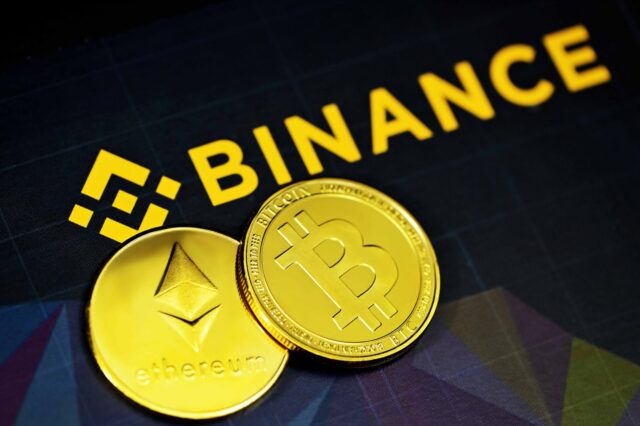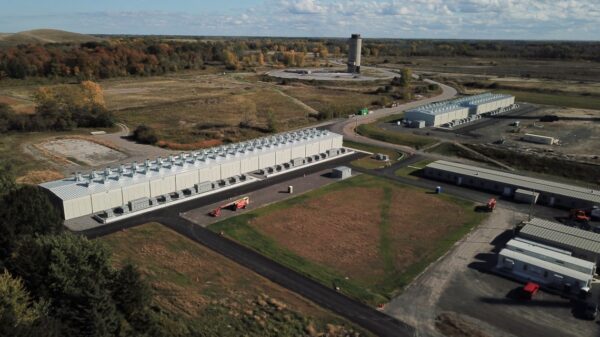The recent collapses of Sam Bankman-Fried’s FTX Exchange, and ripple effect of the subsequent damage to the price of Bitcoin and the rash of bankruptcies throughout the cryptocurrency space brought a number of concerns forward regarding the lack of legislation and guidance.
Now the recent spate of cryptocurrency regulations in Ontario and by the Canadian Securities Administrators (CSA) which led to the departure of noncompliant exchanges like KuCoin, Okx, and mostly recently, Binance, suggest that regulators have decided to bring law to the wild west attitudes that have plagued crypto since its inception.
Bigg Digital Assets Inc. (CSE:BIGG) (OTCQX:BBKCF) CEO Mark Binns sat with Mugglehead in an interview to discuss cryptocurrency regulations, their effect on the metaverse and web3 adoption, the impediments to mass adoption and why he’s bullish on Bitcoin’s future.
The following interview has been edited for length and clarity.
What is the Restricted Dealer Framework?

Mark Binns, CEO of Bigg Digital Assets. Image via Linkedin.
A restricted dealer license, or the framework around, it is a set of rules between the crypto trading platforms (CTPs) and CSA. It’s mainly around onboarding of customers, asking them questions, ensuring proper suitability.
Suitability would be determined based on these questions if someone shouldn’t be trading crypto because they say they only want very stable investments. Then they’re probably not the right customer for crypto trading.
The framework also includes limitations on amounts that individual can invest. Bitcoin has no limits, but altcoins have limits of $30,000 for non-institutional investors. It also includes stipulations about custody and security. It also includes stipulations about insurance and separation of company and customer funds.
It’s a process that has been brought over from traditional investing.
We have to have all of our customer via deposits in a separate trust bank account, not in the same bank account as us. You can’t commingle our funds and theirs and they can’t commingle our cryptocurrency.
Are there specific regulations in this package for fractional reserve banking?
You can’t take customer funds and then loan them out somewhere else to make the return on them. We just have to store them and that’s all there is to it. It is very strict around that.
There is staking, where customers can basically lock their coins up and get repaid an interest rate.
You need a separate staking approval from the CSA for that, which Netcoins does have. There’s only three companies in Canada that have regulatory approval to do staking, but that’s not really loaning out. That’s just having customers essentially lock up their own currency on the blockchain for rewards.
Read more: The world’s largest cryptocurrency exchange leaves Canadian market
Read more: U.S. Securities and Exchange Commission sues Binance and Coinbase
Regulations bring consumer protection to the industry
What other changes has the regulations brought to the industry?
The big thing is consumer protection.
What it’s brought to the industry is that now we have a set of rules that all of the regulated platforms have to follow and if you want to operate, you have to be regulated by the CSA.
You also have to be audited by the regulators in your jurisdiction.
We’re a Vancouver based company so the British Columbia Securities Commission comes in and does an audit on us every year based on our restricted dealer license and make sure we’re following all of the things that I just told you. It makes it really hard for bad actors to operate, because it’s no longer a time where you can just operate in Canada without you either have to be regulated, or in the process of being regulated and working friendly with the regulators.
You can’t be out there with an illegitimate platform in Canada anymore offering crypto trading services. So it lets the customer know that they’re dealing with a legit platform, their funds are safe and they’re insured.

Binance is one of the cryptocurrency exchanges forced to leave the country. Photo from Kanchanara via Unsplash
What regulatory criteria does Netcoins meet that say Okx, KuCoin, and Binance didn’t?
All the things that I went through, but also proper onboarding questions, trading limits, proper test study, segregation of company and customer funds. Those are the things that those platforms didn’t have, or didn’t necessarily have, or they didn’t have all them and didn’t want to have them. So they either chose to leave Canada versus change the way they operate to operate on a legal footing.
Is the bear market in Bitcoin and crypto exacerbated by the present regulatory climate?
So I think it’s exacerbated is the right word due to sort of the negative sentiment out there surrounding FTX, Binance and Coinbase being sued by the SEC. That certainly put crypto in a bad light, and then because crypto is in a bad light people don’t want to buy crypto. They’re concerned about the market or that the market is falling apart and the value of their assets is going down. So that’s definitely exacerbated the situation but it didn’t create it.
The crypto market, like the stock market, goes through bull and bear runs naturally. It gets overheated and has to pull back. The bear market had started long before this recent SEC movement against by Binance and Coinbase and before FTX collapsed, but it definitely made it worse.
But as I like to say, crypto isn’t these trading platforms and these trading platforms aren’t crypto. Crypto itself, like Bitcoin, will survive, regardless of these platforms and it will continue to go through bull and bear markets.
I think we can look for and already see where the next bull market can come from. It can come from regulation and everybody knowing that the industry is safe and then the government saying you’re good to operate.
Some of the words out of the Federal Reserve in the last couple of days are saying ‘we’re getting the market under control and making sure it’s safe and regulated.’ That’s pro adoption; that’s not anti-market. That’s just saying they want to be safe and that is good for the industry and will start pushing us towards the next bull market.
Read more: Canadian Securities Administrators issue scam warning about fake crypto exchanges
Read more: Venezuela halts Petro blockchain due to corruption scandal
Regulations facilitate metaverse and web3 adoption
What effect do you see these new regulations having on Web3 and Metaverse adoption?

The Sandbox opening screen. From The Sandbox.
The currency of Web3 or a lot of these metaverses is cryptocurrency. If you want to buy something in them, or trade land, you’re in the crypto world.
Usually MANA and SAND are two of the main cryptocurrencies. The other thing is that the properties inside of these Web3 or metaverse worlds are essentially NFT’s (non-fungible tokens). You’re essentially buying NFT if you’re buying a piece of land and it’s all tied into the blockchain.
When I look at these regulations and the change that’s happening it’s going make it so people can buy, acquire, trade, or sell any of the cryptocurrencies that are used in the metaverse safely.
That is good for Web3 adoption.
So what role do you see BIGG Digital Assets playing in terms of enforcing the regulations in the future?
There’s two sides of it. BIGG has tools inside of Blockchain Intelligence Group subsidiary that we send out to law enforcement so they can enforce the rules of regulation. We also sell tools to exchanges to make sure they can stay on the right side of regulation.
The exchanges can look at coins coming into a platform and see if they’re coming from a bad actor. It helps them stay on the right side of regulation.
Read more: Tether invests in sustainable Bitcoin mining in El Salvador
Read more: Blockchain Intelligence Group launches course on Ethereum for law enforcement
Two things needed for widespread adoption: regulation and use-value
Do you see that roll expanding in the future in the next few years?
There’s two things. The first is regulation.
Regulation is needed for people to get into crypto because they need to have that feeling of safety and security that they’re not going to lose their money or their bank account at CIBC and they’re not going to lose their Bitcoin. We need to have a fair amount of regulation on a global scale.
The other one is a use-case. It’s a way to use crypto like Bitcoin as something other than an investment, like paying for your morning coffee. That’s when adoption will continue to rise in a global way or widespread adoption.
They’re working on something called the Lightning Network that’s built on Bitcoin that allows you to make fast, cheap and easy payments. PayPal’s including crypto now as a way of making payment, the more and the more global companies that adopt crypto for payment, giving it a real use.
How do you think the industry is going to evolve in the next five years?
Cryptocurrency and the industry overall is evolving into something that looks more like the traditional financial system. I think it’s going to be intertwined. I won’t be surprised to find banking services inside of your cryptocurrency platforms, and I won’t be surprised to see crypto as a currency inside of traditional banks.
There will not be unregulated players. It’ll be a regulated, safe and secure industry. Widespread adoption will follow that. It’ll be more seamless and that’s what’s really going to drive the industry.
.













